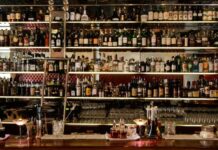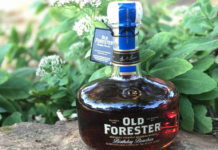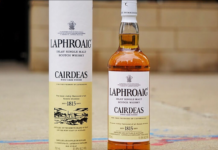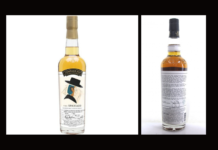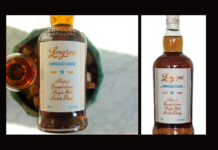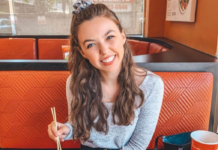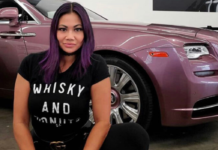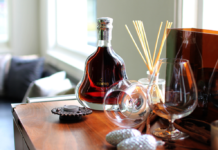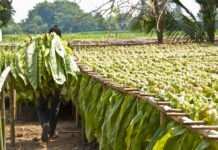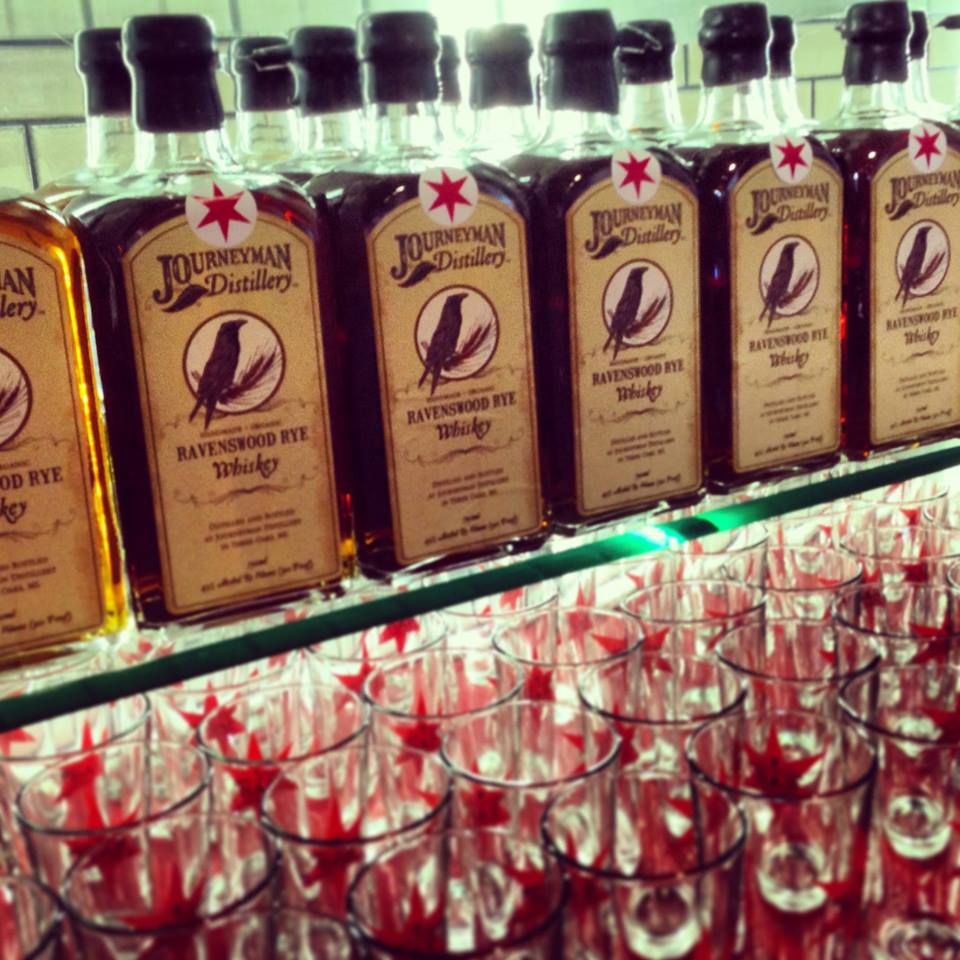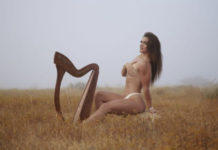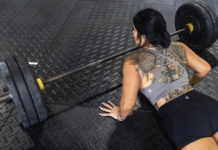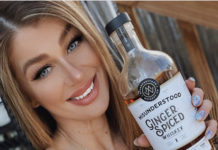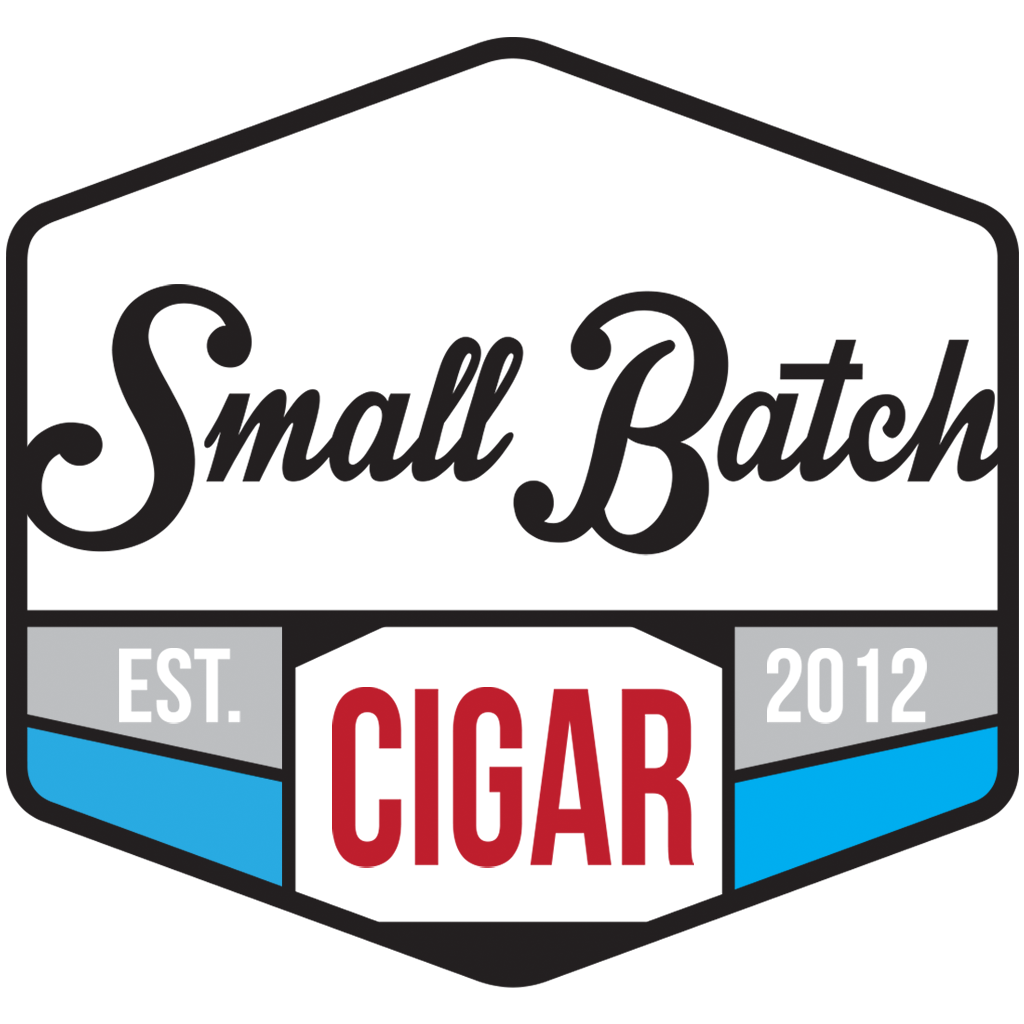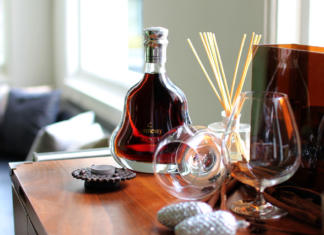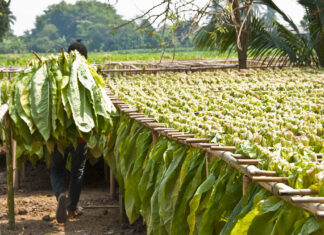Everything about Journeyman Distillery is handcrafted, and we like that our home reflects that attention to labor. The original maple factory floors are from the 1800s. We have an original concrete bar made in Grand Rapids, with coordinates etched into the side—to mark this historic and unique location. We’re using wood from the family barn in central Indiana; wood that was once the flooring for an early 1900s schoolhouse. We feel that EK Warren, the original builder of the factory—while being a staunch prohibitionist—would be proud to see his building shining bright. Our bottles are like our building: steeped in family history that we’re thrilled to share with you.
We spoke to the proprietor Bill Welter of the Distillery about the hardships of running your own distillery and what he loves most about his job.
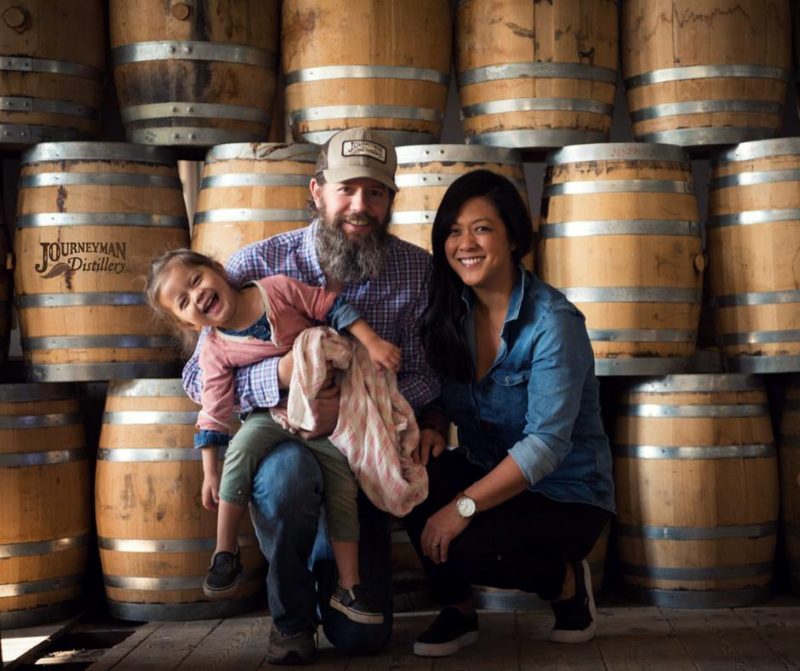 Bill, let’s just get into this. Tell us about yourself and what were you doing before opening up the Journeyman Distillery. Please tell me how the distillery came about?
Bill, let’s just get into this. Tell us about yourself and what were you doing before opening up the Journeyman Distillery. Please tell me how the distillery came about?
BW: While living in Scotland I became interested in whiskey…also befriended an Australian while living in St. Andrews who would go on to open a distillery in Tasmania. I followed my passion for whiskey by working at his distillery and learning the trade…eventually taking those skills to three oaks mi to open Journeyman.
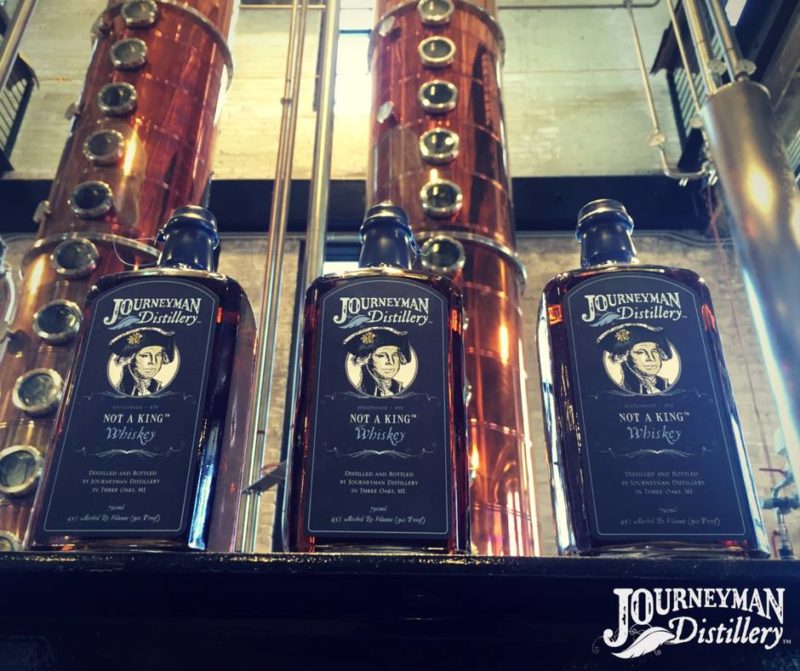 What have been the main challenges involved in setting up a new distillery?
What have been the main challenges involved in setting up a new distillery?
BW: Capital, taxes, regulations.
What does your job entail and is there anyone else involved in this venture?
BW: My wife and I are 100% owners. Very proud that the brand is family owned and operated…Johanna and I are very involved in the business in all aspects. My job entails oversight of all aspects of operations….retail, weddings, restaurant, catering, and production. My main goal is to maintain a high level of customer service and quality of product from our distilled spirits to our restaurant.
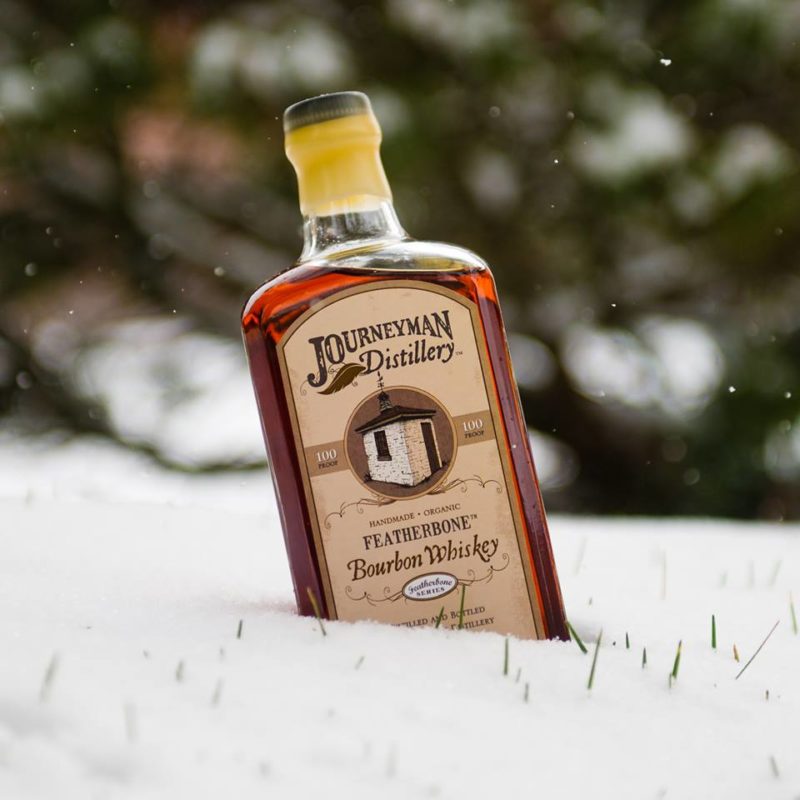 What type of whiskey expressions do you currently produce and how are they all different?
What type of whiskey expressions do you currently produce and how are they all different?
BW: We have our core four and then we release several seasonal whiskies. Last Feather Rye, Featherbone Bourbon, Silver Cross, and Buggy Whip Wheat are our core four. Not A king, Three Oaks Single Malt, Corsets Whips and Whiskey, and Kissing Cousins are our special release products.
What led you to start your own business?
BW: My time spent in Scotland and desire to create a family owned business that I hope will span generations.
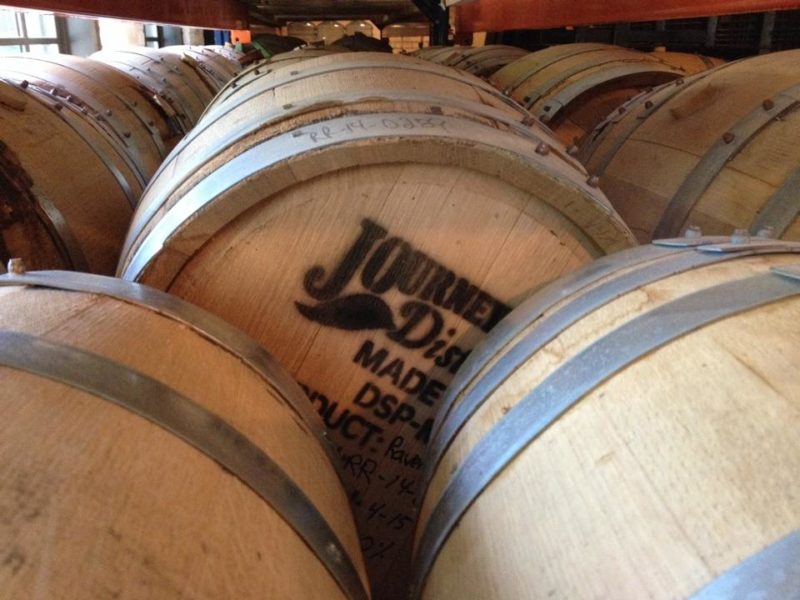 What are the most important factors affecting whisky distillation? How do you ensure that these are carefully balanced to produce a consistently high quality product?
What are the most important factors affecting whisky distillation? How do you ensure that these are carefully balanced to produce a consistently high quality product?
BW: We have sought to have our products be certified organic and kosher. We believe this creates a higher quality product starting with the best ingredients. We feel we have high quality distillation equipment and our techniques are sound.
Where do you think the most flavor control can occur? Grain? Yeast? Water? Wood?
BW: 2/3 barrel. 1/3 yeast water and grain.
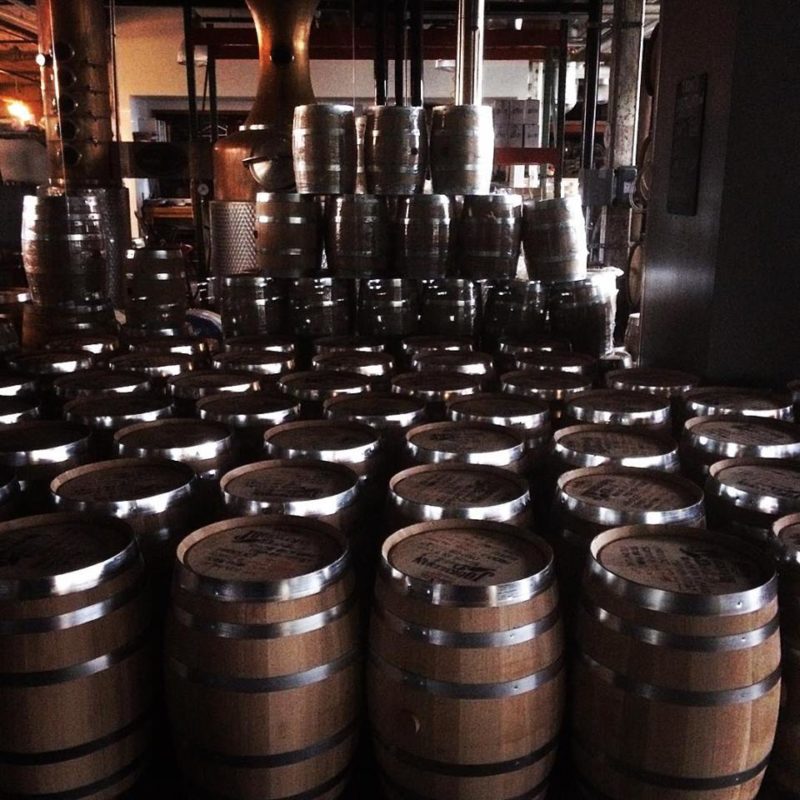 Is there a flavor profile that you aim to achieve when malting, mashing, fermenting, distilling and maturing?
Is there a flavor profile that you aim to achieve when malting, mashing, fermenting, distilling and maturing?
BW: Yes each mash bill presents a unique product.
Where or who do you feel is the driving, innovative force behind our craft distilling industry right now?
BW: I think the driving force is innovation. Being a small distillery we are nimble…we are not required to seek approval from a board of directors or do market research….we can just create products and we have a great testing grounds with our restaurant and bar. Innovation is the innovative force.
Barrier to entry is lowered with the increased availability of resources and the changing of laws to open up craft distilling.
Name a few other distillers or distilleries who inspire you.
BW: St. George Distillery, Balcones, and Lark Distillery.
Describe your whiskey in 3 words:
BW: Authentic, Organic, and delicious
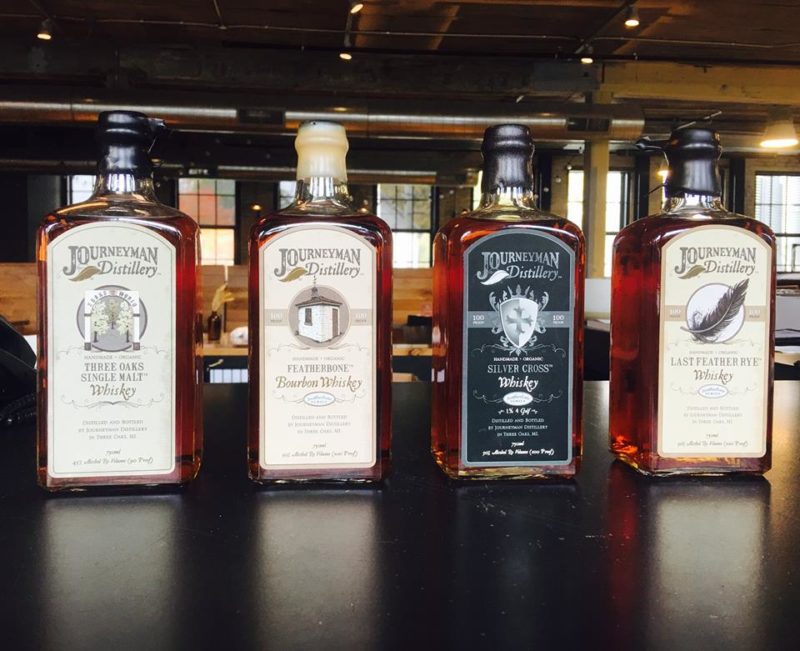 How do you plan to expand nationally? If you plan to do so, that is.
How do you plan to expand nationally? If you plan to do so, that is.
BW: Increased production and a solid national strategy and implementation of a sales plan.
Is there anything else you’d like to share with our readers?
BW: I love the story of our building that we are located in. 1800’s corset and buggy whip factory….EK Warren started his business here using the quill of a turkey feather to make the featherbone which replaced whale bones in women’s corsets and could be used to make buggy whips. He was also a staunch prohibitionist that kept the town of Three Oaks dry for over 40 years.


